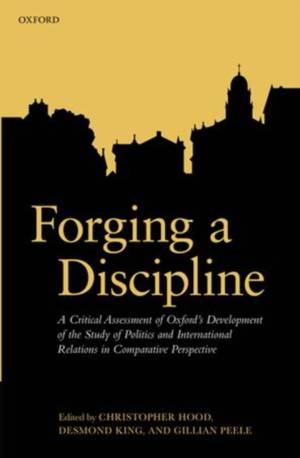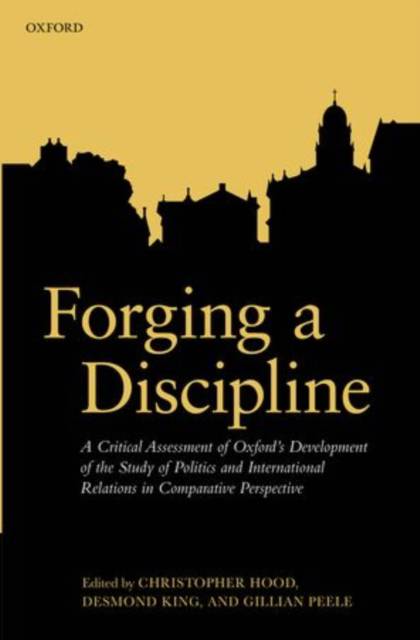
Bedankt voor het vertrouwen het afgelopen jaar! Om jou te bedanken bieden we GRATIS verzending (in België) aan op alles gedurende de hele maand januari.
- Afhalen na 1 uur in een winkel met voorraad
- In januari gratis thuislevering in België
- Ruim aanbod met 7 miljoen producten
Bedankt voor het vertrouwen het afgelopen jaar! Om jou te bedanken bieden we GRATIS verzending (in België) aan op alles gedurende de hele maand januari.
- Afhalen na 1 uur in een winkel met voorraad
- In januari gratis thuislevering in België
- Ruim aanbod met 7 miljoen producten
Zoeken
Forging a Discipline
A Critical Assessment of Oxford's Development of the Study of Politics and International Relations in Comparative Perspective
Hardcover
€ 182,45
+ 364 punten
Omschrijving
A broad-ranging analysis and critique of the distinctive contribution of the University of Oxford to the scholarly study of politics over the last 100 years.
Specificaties
Betrokkenen
- Uitgeverij:
Inhoud
- Aantal bladzijden:
- 304
Eigenschappen
- Productcode (EAN):
- 9780199682218
- Verschijningsdatum:
- 27/02/2014
- Uitvoering:
- Hardcover
- Afmetingen:
- 156 mm x 242 mm
- Gewicht:
- 604 g

Alleen bij Standaard Boekhandel
+ 364 punten op je klantenkaart van Standaard Boekhandel
Beoordelingen
We publiceren alleen reviews die voldoen aan de voorwaarden voor reviews. Bekijk onze voorwaarden voor reviews.








